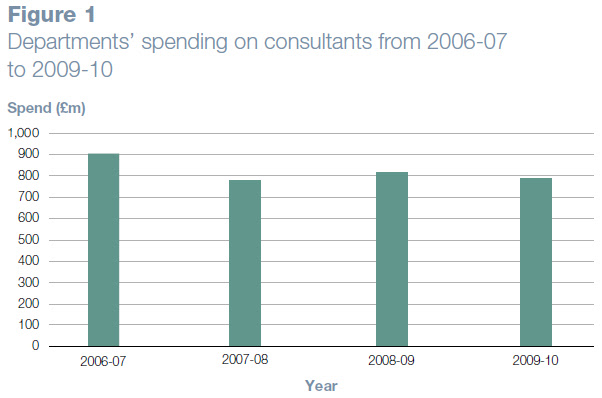
Why these fundamental changes to the “Employment Rights Act 1996” were implemented by Pickles’ Department for Communities and Local Government and not by Iain Duncan-Smith’s Department for Works and Pensions perhaps exposes a low Duncan-Smith was not prepared to go down to. In April 2013 the bill became law, and from September 2013 these new employment contracts can be written and employees’ rights endure the following beating:
Among the rights lost are the right to training; the right for flexible working; protection against unfair dismissal; the right to redundancy payment:
An employee who is an employee shareholder does not have—
(a) the right to make an application under section 63D (request to undertake study or training),
(b) the right to make an application under section 80F (request for flexible working),
(c) the right under section 94 not to be unfairly dismissed, or
(d) the right under section 135 to a redundancy payment.
In return, the employer is supposed to give the employee between £2,000 and £50,000 (can be more, but tax protection is limited to £50k) of “shares”. However, these aren’t shares as we know them. The employer can decide whether these pieces of paper do or do not have the rights shares usually have:
- Voting rights.
- Rights to dividends.
- Rights to a share of surplus assets if the company is wound up.
- Right to be sold (the employer can place restrictions on who can buy the shares – e.g. they can only be sold back to the employer. And whether the shares have ‘drag along’ or ‘tag along’ rights when the company itself is being sold)
Quite apart from not having rights to vote, dividends, etc. this creates another key weakness for these ‘shares’. Because they have fewer rights than real shares they can’t be valued against real shares. So they are worth pretty much whatever the employer says they are worth when he takes them back (at the time of your sacking).
In short, what do you call a share that has no votes, no dividends, and can only be sold to whomever the employer says? Answer: bog-roll.
The prime beneficiaries of this change in employment law will be companies that tend to get into hot water with current employment law. The Department’s own impact assessment states that the cost benefit for companies that don’t have to pay out for breaching employment law is just £43 per year per employee – that’s 83 pennies a week:
"Not including tribunal awards and settlement payments, our estimated expected avoided cost per individual that a company employs as an employee shareholder rather than an employee is around £43 each year. This avoided cost is related to the fact that an employee shareholder does not have certain statutory employment rights."
“Not including tribunal awards and settlement payments” means the sort of companies that do habitually have to pay tribunal awards and settlements for breaching workers’ rights will save much more because their workers won’t have those rights anymore.
And of course employers tend to lay off people when their company is in trouble. Which is when the shares are most worthless. So, for the employer it is a win-win, and for the employee a lose-lose.
Further abominations from this change in legislation include:
1) Can companies advertise jobs only on an ‘employee shareholder’ take it or leave it basis? Yes they can, as clarified by Lord Younger:
"It should be up to employers to recruit as they see fit. If a company wants to recruit an employee shareholder, as companies already do with employees and workers, it should be able to do so in its own way. Taking the argument further, if an employer wishes to post a notice for, or advertise, an employee shareholder position, they should be free to place this as one role, just as they would be able to do in an advertisement for any other role."
2) Can you lose unemployment benefits if you refuse to apply for an ‘employee shareholder’ job? After much pressure the government conceded to amend the guidance stating that you cannot lose benefit. But ‘guidance’ is just guidance, and unlike the law changes at a whim.
"Whether or not JSA claimants could lose their benefit if they refuse to accept job offers carrying the employee shareholder status was an obvious question. I first asked it in November [2012], when the Government ignored it. I repeated it, and the Government said that they could not lose their benefit. When they were mauled on the point in the other place, they effectively admitted that they could. In order to get the proposal through in the face of opposition from several former Conservative Cabinet Ministers, the Government had to come to the House last week and agree to amend the guidance for Department for Work and Pensions Jobcentre Plus advisers to state explicitly that a jobseeker cannot be mandated to apply for an employee shareholder job."
3) If you have been unemployed, is it really an option to refuse to take an ‘employee shareholder’ job? For many people it is not:
"There are more than 2.5 million unemployed, and it is rising. People are desperate for work and will do anything they possibly can to find a job. The pressure to take the shares or perhaps lose the job—that informal pressure—will ensure that this is not voluntary. It is like putting food on a plate in front of a hungry person and saying that it is voluntary to eat it."
Another step eroding employment rights in Britain, when according to the OECD we already have close to the weakest employment rights in the developed world:
 |
| http://www.oecd.org/employment/emp/oecdindicatorsofemploymentprotection.htm |






















































